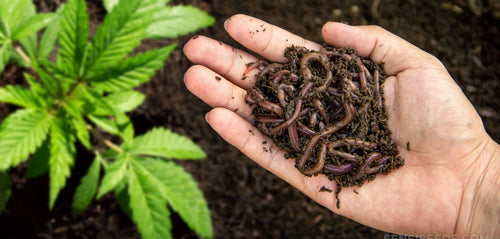#22: From Olympic Gold to Cannabis Bold: The Story of Ross' Gold
#22: From Olympic Gold to Cannabis Bold: The Story of Ross' Gold
Do you know what the difference is between 15 nanograms and 17.8 nanograms of THC (tetrahydrocannabinol)? If you're Canadian Olympian Ross Rebagliati, then the difference is a gold medal. At the 1998 Winter Olympic Games in Nagano, Ross won the first-ever Olympic gold medal in snowboarding but was then stripped of his medal after testing 2.8 nanograms over the allowable limit of 15 nanograms.
Ross appealed the decision twice, both times arguing that he tested positive for THC from second-hand smoke. The case eventually went to the Court of Arbitration for Sport where Ross' lawyers cited that THC was not on the IOC's (International Olympic Committee) list of banned substances and that there was no legal ground to disqualify him. Ultimately, the IOC reversed its decision and Ross became the first-ever Olympic snowboarding champion.
After the incident, Ross became an instant celebrity with a whirlwind of media requests and endorsement offers. From appearances on The Tonight Show with Jay Leno to endorsement deals with Roots Canada, Ross gained instant and widespread recognition for his story. He also became a pioneer in the world of cannabis culture using his platform to advocate for cannabis reform and challenge the long-held stigma about it.
Today, Ross is still a leader in the cannabis industry. He is the founder and CEO of Ross' Gold, a cannabis lifestyle brand dedicated to providing surefire quality cannabis to Canadians. We had the pleasure to chat with Ross and learn more about his journey, the incredible power of cannabis advocacy, and what’s coming next for the world-renowned snowboarder. Read on to find out more!
Thanks for talking with us, Ross. It is an honour to have you here. Your journey from Olympic snowboarder to cannabis entrepreneur is truly inspiring. Can you tell us how it all began?

It truly began with my love for cannabis. So that was the common denominator, but transitioning away from my sports career into cannabis wasn't an overnight thing because of the fact that we were deep into prohibition back in the late 90s.
But I had a lot of interest from the cannabis community and a ton of support and it was something that I was already asking about. So I just went with that and decided that I was going to get out on top of it and promote cannabis. I wanted to do that even though there was prohibition and there was probably going to be some pushback.
Because of the stereotypes and the stigmas of cannabis, it was my mission to change those views on cannabis and turn around the negative connotation that cannabis had and that I experienced at the Olympics. And so that was my motivation to get into the cannabis industry, to help move cannabis into an accepted space, and also to get redemption for myself. That's why our slogan is, It's Personal.
That slogan really captures the essence of your story. How has your experience as an athlete helped shape your views on cannabis and its potential medicinal value?

From an athletic standpoint, athletes are constantly trying to sleep better, eat better, have healthy calories and do everything that they can do to be better athletes. Growing up in my late teens and early 20s, I started using cannabis and started to realize that it benefited me quite a bit as an athlete in that it helped me eat properly. It would help me sleep properly so I could recover from my workouts and be fresh in the morning, but also help me sleep when I was sleeping and help me get to bed earlier.
And I didn't have those lingering hangovers, so I was able to wake up early. The more and more I realized that was back in the late 90s and the early 2000s. We didn't have much information on weed. The Internet wasn't out there yet so I was just looking at it from a self-experimental standpoint and comparing it to drinking back in those days and experimenting just like everybody else who was figuring it out.
What's your poison like? Oh, you know I'm really good at drinking vodka and over time I got too good at it and I realized that it wasn't conducive to being as healthy as I could be. And I ended up quitting drinking and just used cannabis for the same reasons why I was drinking, which was for decompression - to decompress at the end of the day and find a way to relax. Plus, all the other athletic benefits that I was noticing. So there were two things combined together to be a really powerful combination where I was able to drop something that wasn't as healthy for me and double down on something that I felt was. And now, 25 years later, we have the proof to back up how I was feeling about it.
Would you say that cannabis is a performance enhancer?

I think the word performance is stigmatized and has its own stereotype, right? But I think in the true sense of the word, cannabis isn't necessarily going to give you the ability to all of a sudden run more quickly between doing one sprint and then smoking a joint and doing another sprint. I don't think it's going to work that way.
But I have made the argument that it is performance-enhancing on a different level as far as consistency. Like I said with sleep habits, eat habits, even when you're supposed to go to the gym for the millionth time in a row and it's pouring fucking rain at 5:00 o'clock in the morning and you don't really want to do it, and you have a little bong hit and all of a sudden you're feeling a little bit more motivated. And then you end up in the gym doing your workout. All those things are conducive to marginal gains and an increased level of performance.
As the founder and CEO of Ross' Gold, a lifestyle brand dedicated to providing surefire cannabis to Canadians, what inspired you to create this brand?

My love of cannabis and a healthy lifestyle and how I use cannabis around those parameters, combined with my crazy cannabis story of testing positive for it at the Olympics then losing my medal, and the only time in history they ever gave back a gold medal. I mean this wasn't just an opportunity for me. That just was a 100% fit for my character and my passion for the idea that we can help people feel better.
And that's our goal, which is to feel better. So those are the motivations that I had. Unfortunately, it took longer than I expected for brands to be a thing in the industry. When we launched Ross' Gold 12 years ago, you had to be an LP (licensed producer), and that wasn't something that we were interested in. We never tried to do that.
The basis of a good brand has to have a good story behind it and I felt like we had that great story. I have this passion for cannabis and, over the 25 years since Nagano, I was a part of the bigger movement to legalize cannabis and have it on the kitchen table and be part of that conversation that people were having around the kitchen table about cannabis, back in the day when I was at the Olympics.
You were quite forward-thinking 25 years ago and it took a lot of courage to make the decision to advocate as you did. Credit to you for using your platform to advocate for change, even at the risk of your own reputation.

I was keenly aware of the opportunities that were lost because of the story of cannabis. As soon as the story broke, I knew that was probably the only way I was going to be able to convert my notoriety into a living. Luckily for me, it was something that I was down to do because I believed in cannabis and I believed in the wrongfulness of prohibition.
Since I was 12 years old, I've been listening to Peter Tosh talking about legalizing it and wondering, why is this guy here? He's a reputable musician, he's saying to legalize it. Bob Marley saying to legalize it, Cypress Hill saying to legalize it, and Snoop Dogg saying to legalize it, right?
So I said I'm going to use some of my own judgment here and just double down. The powers that are at play don't necessarily have our best interests in mind and me realizing that at the time, I was not going to let this opportunity slip through my fingers, man. This was my chance to get behind cannabis and make it right.
What makes Ross' Gold unique and different from other cannabis brands out there in Canada?
We've got a unique way of procuring our flower. I personally have relationships with the growers that produce for us. In most cases, I've actually personally worked in these facilities over the years.

While this was all coming to fruition, I was out there building houses and de-leafing and working in the industry. So that's nice that I know these guys personally. I know that there's fire. I have a pretty keen interest in good cannabis so it's not too hard for me to detect products that I would want to have and who would I want to get it from. So that's a cool thing.
One of our differentiators is the brand story and how Ross' Gold was born. We're coming at it from that athletic, healthy lifestyle standpoint. We had the store during prohibition and encountered a bunch of shit when we were out there. Trying to push the envelope and not just jump on the bandwagon. I put my name on the store - it was a Ross' Gold store during prohibition. If someone's going to get closed down, come close me down. It's just going to create a buzz and it unfortunately never happened and we decided to close the store down before legalization.
What also makes our products different is our commitment to living soil and organic inputs. Even if your method isn't living soil but deep water culture, the people that we use to supply our flower are using some of the most incredible methods. And that's a big part of what we're going to do.
We also link our growers to our brand so you're going to be able to go to the store and buy weed, find out who grew the weed, and have that information on our website to their stuff. We're promoting those shops that grow our flower. That's part of what we do, which is we work together to support each other.
Is your glass company, Ross' Gold Glass, still part of your portfolio?

The license for Ross' Gold Glass has expired. We did a 6-year deal that ended in 2016. The deal ended and we are going to be getting our merchandise back and doing another line of glass and a line of clothing. We're actually getting clothing in the next week or two here. So we're looking at getting a nice little lineup of merch and stuff that you need to smoke weed with.
What other plans do you have in store for Ross' Gold and what are you most excited about for its future?
We've got our pre-rolls and dried flower which will be coming out pretty soon as well. We're getting into Ontario and we're expanding where we are in Canada. We've got some deals happening in Australia. So the brand is going to be exported to other countries and there's a lot of excitement around that. The story wasn't just a Canadian story, it truly was an international cannabis story. So there's a lot of traction in European countries and in Australia and other parts of the world. Just as soon as cannabis laws take a turn for the better, we'll start seeing Ross Gold popping up all over.
You've had a long storied career from athlete to cannabis entrepreneur. Do you have any advice for aspiring athletes or entrepreneurs looking to take part in the cannabis industry?

100%. I think the long-term plan is the way to go and to look at it that way. Never, never give up no matter what. It's some classic sports talk there. But starting a brand and getting into this industry is the right thing to do for some people and maybe not so much for others.
As long as people are aware of the business, and the nature of the industry is to be a federally regulated industry, I think then they'll have their ducks in a row. But that's probably the main thing is to just have your ducks in a row and start small and grow it.
One last question - how has the experience of being a professional athlete been helpful in your journey as an entrepreneur and a business owner?
I always like to use the term that winning is a losing game. So I was on the World Cup Tour for 10 years and out of 20 races a year, I would win one race. Hmm. So I lost 19 races to win one race. So winning is a game, right?
And that's the model that I go by, and I think people can go into it looking at it from that standpoint. You have to fail to succeed and if something doesn't work, see if there's a way to correct it and just keep moving forward, keep having that intention in your head and that manifestation happening every day. Other than that, it'll come together.










